Search Results
Showing results 481 to 500 of 540

Sock It To Me!
Source Institutions
In this activity (7th activity on the page), learners use their sense of touch to identify mystery objects hidden in socks.

100 Puzzles
Source Institutions
In this activity, learners find as many combinations of a hundred as they can using various puzzle pieces from a hundred square grid paper.
The Same Names
Source Institutions
In this math activity, learners make and explore patterns using the letters in their names, a grid, and some colors.
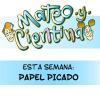
Papel Picado
Source Institutions
En esta actividad, los aprendices exploran la simetría haciendo papel picado, una decoración común en México para las celebraciones.

Peripheral Vision
Source Institutions
How far can you see out of the corner of your eye? Grab a partner and find out from the Exploratorium Science Snack.

Crunch Time
Source Institutions
In this quick and easy activity and/or demonstration, learners use two empty 2-liter bottles and hot tap water to illustrate the effect of heat on pressure.

Make a Comeback Can
Source Institutions
Learners build a can that automatically returns after being rolled away. The can has a rubber band inside that stores energy as the can rolls one direction.
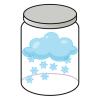
Snowstorm in a Jar
Source Institutions
In this activity, learners will experiment with density and chemical reactions to create a flurry activity.

Far-Out Corners
Source Institutions
Are there boxes, is this an illusion, or is this real life Q-bert? Illusions are always fun to build especially when you can build them.
The Bent Pencil
Source Institutions
In this optics activity, learners explore how light bends and affects what we see.
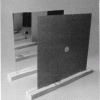
Look Into Infinity
Source Institutions
Learners use two mirrors to explore how images of images of images can repeat forever.
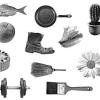
Memory Solitaire
Source Institutions
In this online game, learners practice memory recall. They are shown a collage of pictures for two minutes, then have to write down everything they remember and check how they did.

Straw Oboe: Two lips make sound
Source Institutions
Oboes's unique sound originates from the two small reeds a musician blows into. Make your own double reed instrument out of straw!

Surface Tension
Source Institutions
In this activity exploring liquid dynamics, learners design and build a clay channel in a tray of water and then see what happens when food coloring and liquid soap are added to the mix.
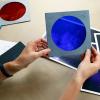
Exploring the Universe: Filtered Light
Source Institutions
"Exploring the Universe: Filtered Light" demonstrates how scientists can use telescopes and other tools to capture and filter different energies of light to study the universe.

Hollandaise Sauce: Emulsion at Work
Source Institutions
In this activity, learners follow a recipe to make hollandaise sauce. Learners discover how cooks use egg yolks to blend oil and water together into a smooth mix.
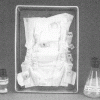
Diaper Dissection
Source Institutions
This is written as a display, but can easily be adapted to a hands-on activity. Learners discover how all the parts of a diaper work together to keep babies dry and comfortable.
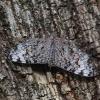
Butterflies and Moths: Camouflage
Source Institutions
In this activity, learners make a camouflaged butterfly to hide outside for others to find.
Finding the Right Crater
Source Institutions
This quick demonstration (on page 11 of PDF) allows learners to understand why scientists think water ice could remain frozen in always-dark craters at the poles of the Moon.
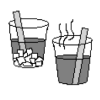
Glow Fast, Glow Slow: Alter the Rate of a Reaction!
Source Institutions
Learners investigate one factor affecting reaction rates: temperature. In a darkened room, two identical lightsticks are placed in water -- one in hot water and one in cold water.
